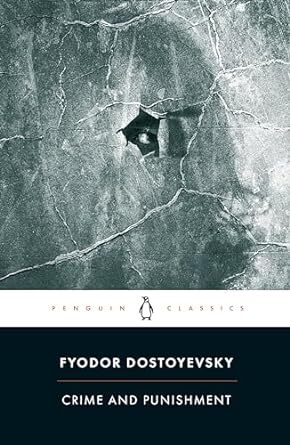Lessons for Fantasy Writers from Dostoevsky’s Crime and Punishment
Fyodor Dostoevsky’s “Crime and Punishment” is a towering masterpiece of literature.
While it might seem an unconventional choice for fantasy writers, the novel’s exploration of complex themes and its intense focus on character development offer valuable lessons for crafting compelling fantasy narratives that resonate with readers on multiple levels.
 Examining Moral Ambiguities
Examining Moral AmbiguitiesAt the heart of “Crime and Punishment” is the story of Raskolnikov.
He is a former student who believes himself above the law and capable of committing a crime for a greater good.
The novel painstakingly explores the moral and psychological repercussions of his actions, providing an in-depth examination of the grey areas of morality.
Lesson: Fantasy writers can similarly challenge their characters with moral dilemmas that test their beliefs and values.
By placing characters in situations where the right choice is not clear-cut, or where the decision could have profound personal and societal repercussions, writers can add depth to their narratives.
This engages readers in complex ethical questions.
The Importance of Setting as CharacterDostoevsky’s St. Petersburg is almost a character in its own right.
It reflects Raskolnikov’s turmoil and the societal conditions that influence his actions.
The oppressive atmosphere of the city, with its stifling heat and cramped, maze-like streets, mirrors the protagonist’s mental state.
It serves as a constant reminder of his isolation and paranoia.
Lesson: In fantasy writing, the setting should do more than just provide a backdrop for action.
It should actively reflect and enhance the themes and emotions of the narrative.
Whether it’s a sprawling city or a secluded magical forest, the environment can be used to mirror the internal conflicts of characters and to heighten the narrative tension.
The Psychological Complexity of CharactersDostoevsky is a master of psychological realism.
“Crime and Punishment” is a profound exploration of the human psyche.
Raskolnikov’s complex motives, his fluctuating mental state, and his interactions with other characters provide a rich study of human psychology.
Lesson: Fantasy authors should strive to create characters with similar psychological complexity.
Characters should have clear motivations, fears, and desires that drive their actions and interactions.
This depth makes characters more relatable and their journeys more compelling, thereby enhancing the reader’s investment in the story.
Use of Foil Characters“Crime and Punishment” features several characters that act as foils to Raskolnikov.
This includes the saintly Sonya, whose compassion contrasts sharply with his nihilism.
These characters highlight different facets of the protagonist’s personality.
They help explore the novel’s themes from various angles.
Lesson: Fantasy authors can effectively use foil characters to highlight and contrast the central themes of their stories.
By creating characters that embody opposing traits or ideologies, writers can explore the central conflicts of their narrative more fully and add layers of meaning to their work.
The Role of Dialogue in Unveiling ThemesMuch of the philosophical and ethical exploration in “Crime and Punishment” occurs through dialogue.
This allows characters to voice different viewpoints and clash over key issues.
This interaction is crucial for unpacking the novel’s complex themes.
Lesson: Effective use of dialogue in fantasy can serve a similar purpose.
Rather than relying on narrative exposition, authors can use conversations to reveal character motivations, build the world, and address the story’s deeper themes.
Dialogue can be a dynamic tool for advancing the plot while also fleshing out the philosophical and moral underpinnings of the story.
Beyond the Fantasy Genre“Crime and Punishment” provides a blueprint for how deep psychological insight and moral complexity can elevate a narrative.
Fantasy writers looking to enrich their stories can draw from Dostoevsky’s approach to create novels that are not only engaging and imaginative but also profoundly resonant.
By integrating these lessons into their work, fantasy authors can craft stories that captivate the mind and stir the soul, much like Dostoevsky’s enduring classic.
read more tips for writers.The post Lessons for Fantasy Writers from Dostoevsky’s Crime and Punishment first appeared on Jon Cronshaw.



